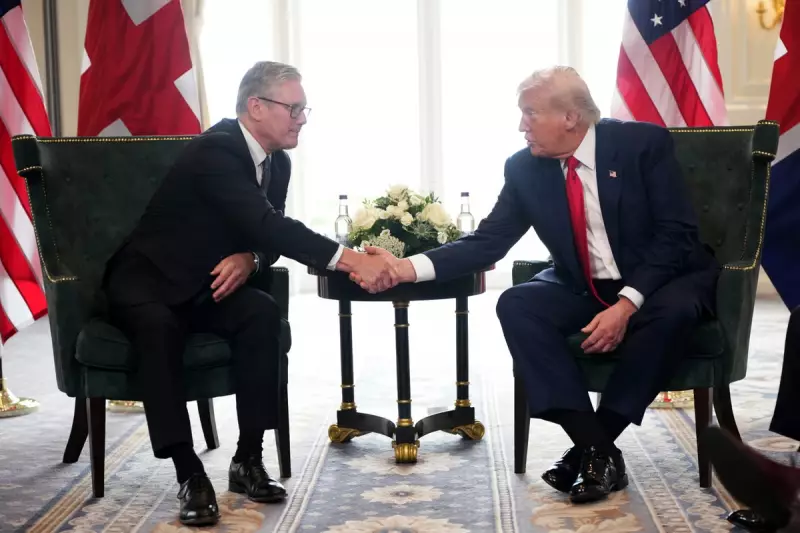
Labour leader Sir Keir Starmer has issued a stark warning over former US President Donald Trump's potential investment in Britain's nuclear power infrastructure, raising serious national security concerns. The opposition leader has pledged to subject any such deals to intense scrutiny if he enters Downing Street after the next general election.
The controversy centres on reports that Trump is exploring avenues to acquire significant stakes in UK nuclear projects, including the sprawling Sizewell C site in Suffolk. This has triggered alarm bells within political and security circles regarding foreign influence over the country's critical energy infrastructure.
"Protecting Our National Interest"
Sir Keir was unequivocal in his stance when questioned about the potential investments. "When it comes to our nuclear energy and our national security, I will take absolutely no risks with that at all," he declared emphatically.
The Labour leader emphasised that any proposed investment would undergo rigorous examination to ensure it aligns with Britain's national interest. His comments reflect growing apprehension about foreign control over assets fundamental to the nation's energy security and sovereignty.
The American Nuclear Connection
Concerns have been amplified by Trump's previous associations with the American nuclear industry during his presidency. His administration reportedly explored methods to support nuclear operator Westinghouse Electric in acquiring projects abroad, potentially including UK assets.
This background has heightened worries among security experts about the motivations behind any potential investment moves and their implications for Britain's strategic autonomy.
A Political Dividing Line
The emerging controversy sets the stage for a significant political battle over energy security and foreign investment. Sir Keir's firm position establishes a clear dividing line with the current government's approach to critical infrastructure investment.
With nuclear power playing a crucial role in the UK's transition to net-zero emissions and energy independence, the question of who controls and benefits from these assets has moved to the forefront of political debate.
As the situation develops, all eyes remain on how both the government and opposition will navigate the complex intersection of energy security, foreign policy, and economic investment in one of the nation's most sensitive sectors.





